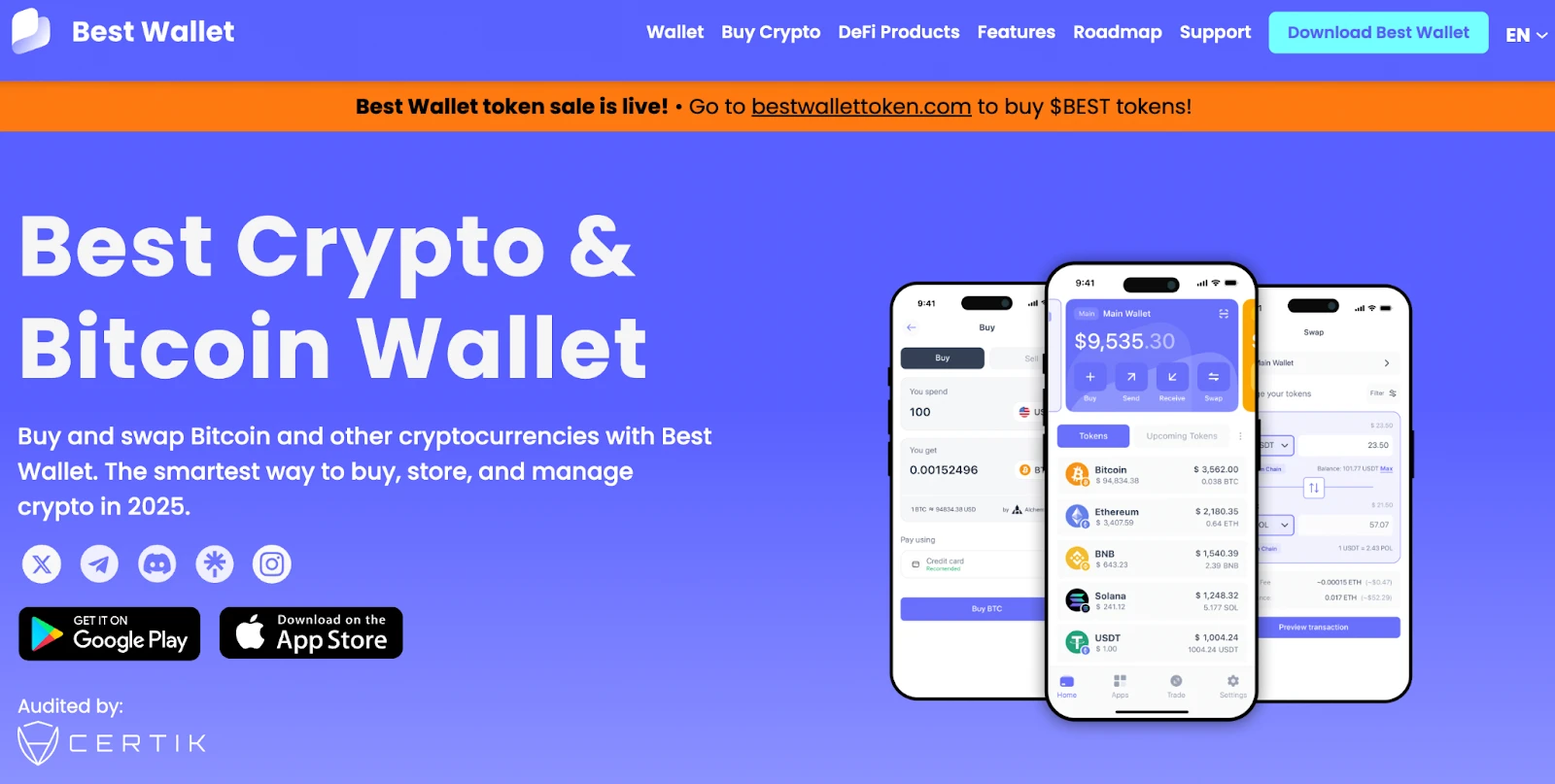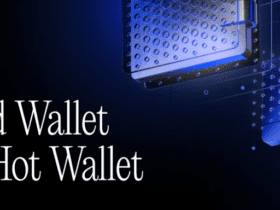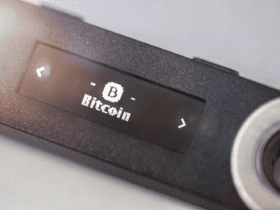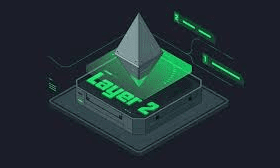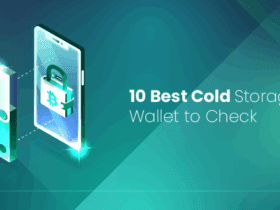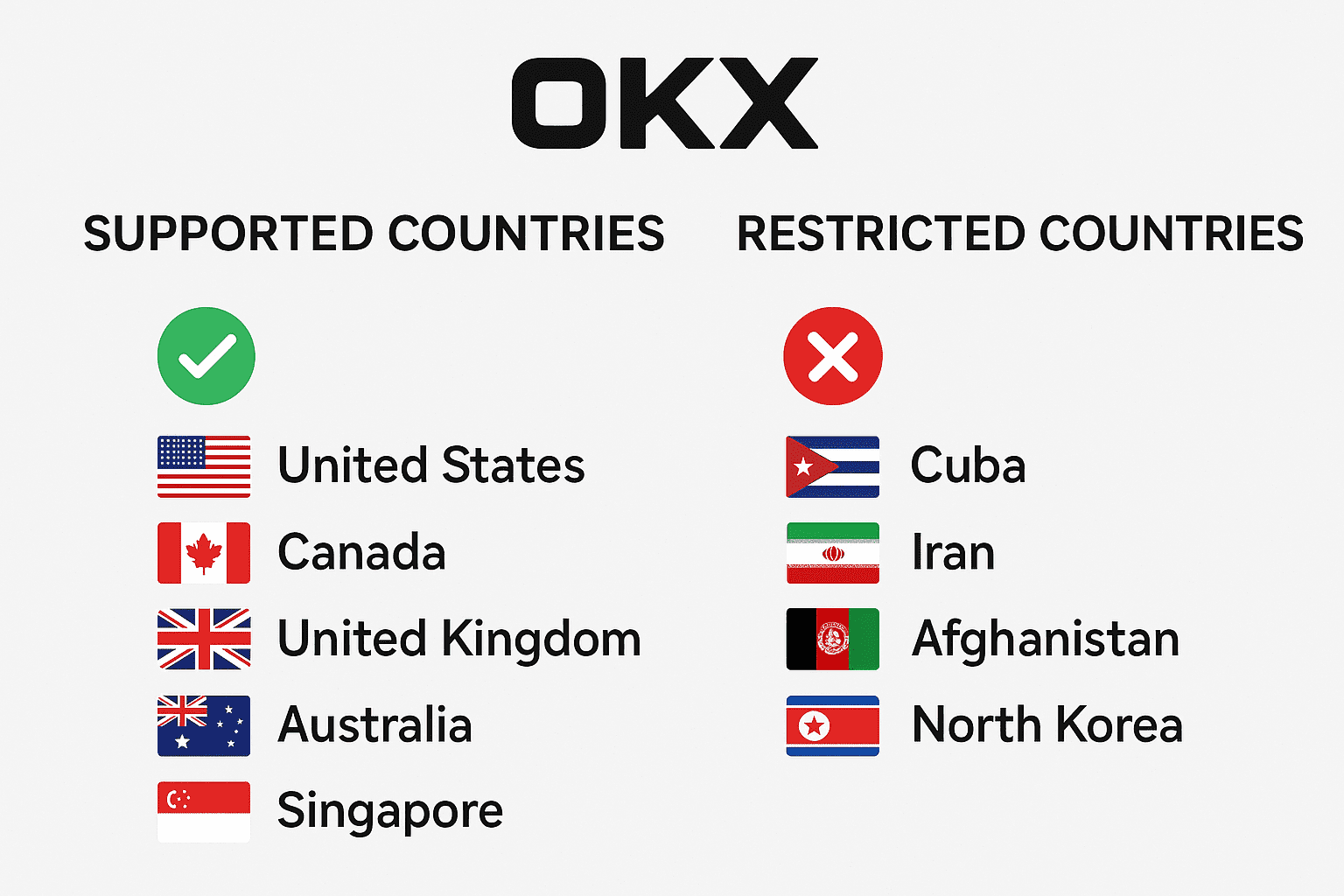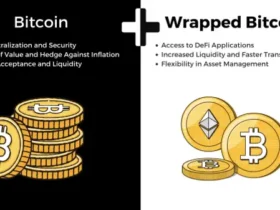This article covers the Best Browser-Based Crypto Wallets with a secure and straightforward way of managing, trading, and storing cryptocurrency.
Wallets on web browsers permit access to the burgeoning world of Decentralized Finance (DeFi) services, Non-Fungible Tokens (NFT) collections, and a wide range of blockchain environments without heavy software installations.
MetaMask, Trust Wallet, Phantom, and many other well-known options are analyzed in detail to examine the features, advantages, and disadvantages of each crypto user.
Key Points & Best Browser-Based Crypto Wallets
| Crypto Wallet | Key Features |
|---|---|
| MetaMask | Ethereum-focused; supports NFTs, ERC-20 tokens, dApps; secure browser extension |
| Coinbase Wallet | Non-custodial; supports multiple blockchains and NFTs; full control of private keys |
| Trust Wallet | Multi-chain support (60+ blockchains); user-friendly; integrated exchange |
| Phantom Wallet | Built for Solana; fast performance; staking, token swaps, NFT management |
| Exodus Wallet | Supports 250+ assets; sleek UI; built-in exchange; hardware wallet integration |
| Argent | Smart wallet; social recovery; user-friendly security model |
| ZenGo | No seed phrase; biometric security; advanced cryptography |
| Rabby Wallet | Multi-chain DeFi support; clear transaction previews; browser extension |
| WalletConnect | Connects browser to mobile wallets; secure dApp access |
| BitKeep Wallet | Multi-chain; supports staking, token swaps; user-friendly interface |
1. MetaMask
MetaMask is a non-custodial cryptocurrency wallet that is very popular among Binance Smart Chain, Avalanche, and Polygon users, as well as the rest of the Ethereum and Ethereum-compatible blockchains.
MetaMask enables its users to manage their tokens, trade cryptocurrencies, and interact with decentralized applications (dApps) directly from the wallet. Users of MetaMask also enjoy a browser extension that works with DeFi and NFT ecosystems such as OpenSea and Uniswap.
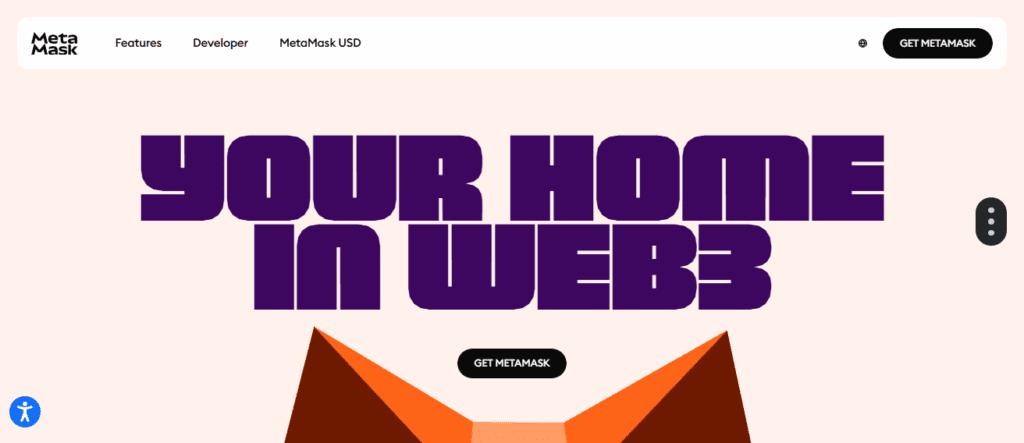
MetaMask ensures the independence of its users by offering non-custodial wallets. It also features the use of hardware wallets, the setting of custom gas fees, and supports the use of multiple networks simultaneously.
Pros And Cons MetaMask
Pros:
- Integrates multiple EVM-compatible blockchains which include Ethereum, BNB Chain, and Polygon.
- Convenient dApp integration for DeFi, NFTs, and Web3 platforms.
- Non-custodial, hence the users control their private keys.
- Integrates with hardware wallets like Ledger and Trezor.
Cons:
- No direct customer support for many of the troubleshooting problems.
- Supports only EVM-based blockchains, Bitcoin is not supported.
- Users are required to add custom networks and tokens manually.
- Gas fees can be quite high during Ethereum network congestion.
2. Coinbase Wallet
Coinbase Wallet is a self-custody browser wallet offered by the well-known cryptocurrency exchange Coinbase. Users have the flexibility to store, send, and receive various cryptocurrencies.
Users still have complete ownership of their keys. For added convenience, the wallet incorporates features of the Coinbase ecosystem.
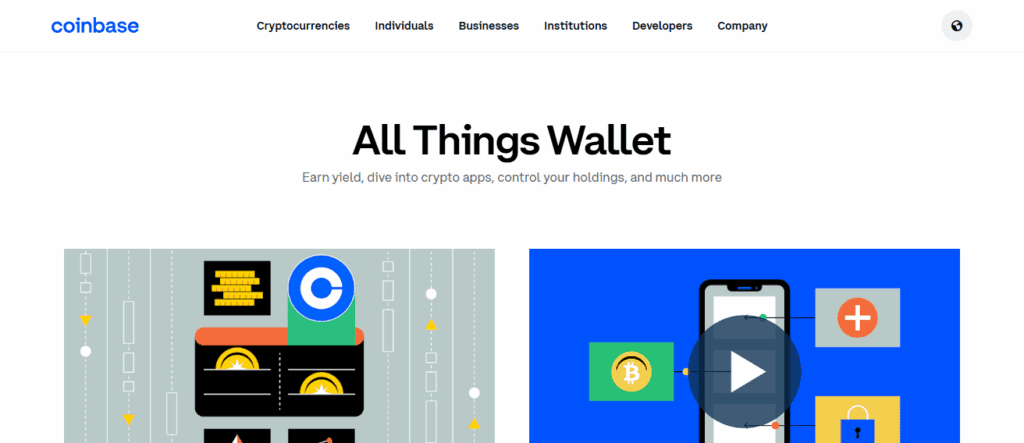
Although it functionally operates as an independent product, letting users interact with dApps, NFTs, and DeFi programs on Ethereum and other EVM-compatible blockchains.
The built-in browser streamlines the process of accessing secure and private Web3 applications. Coinbase Wallet users, crypto novices and veterans alike, appreciate its robust security features, high-grade encryption, and convenient backup options.
Pros And Cons of the Coinbase Wallet
Pros:
- Backed by a trusted exchange, Coinbase reliability is unquestionable.
- Automatic integration with a Coinbase account makes transfers seamless.
- A large variety of supported tokens and NFTs.
- dApp browser is built-in for direct access to Web3.
Cons:
- Confusion with custody, since it’s different from the Coinbase exchange wallet.
- Compared to MetaMask, it has less multi-chain support.
- Backing up requires Google Drive or iCloud, which is quite the dependency.
- Some in-app swaps have higher transaction fees.
3. Trust Wallet
Initially a mobile wallet, Trust Wallet has expanded to include a multi-chain compatible web extension for Ethereum, Binance Smart Chain, and Solana.
Trust Wallet is easy to use and offers impressive token versatility. This makes Trust Wallet one of the more adaptable wallets available in the crypto ecosystem.
Users can seamlessly access DEXs, NFT marketplaces, and DeFi applications, all within their browsers.
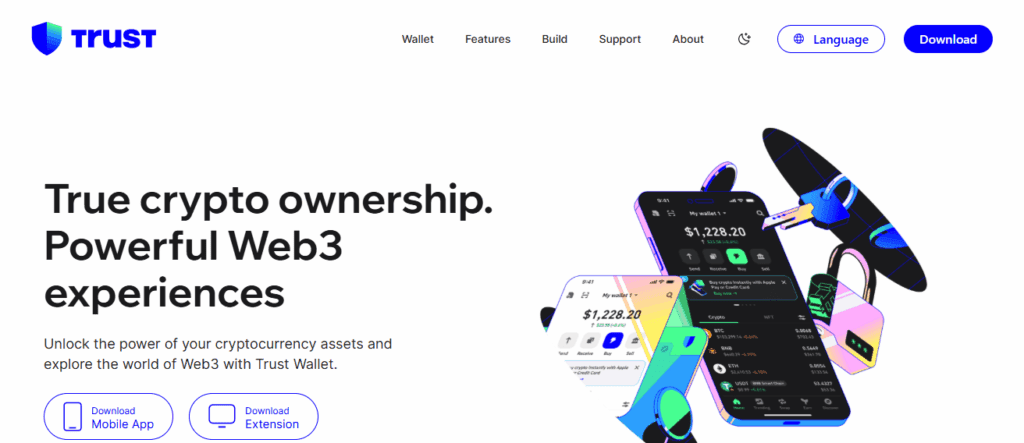
Trust Wallet is fully non-custodial, ensuring that users maintain full ownership of their assets and private keys.
Wallet Trust features built-in and always-available crypto market visualization, enabling the reliable management and growth of digital assets.
Pros And Cons Trust Wallet
Pros:
- Multi-chain support including Ethereum, BNB, and Solana.
- Non-custodial, thus users completely own their crypto and keys.
- Access to integrated staking, DEX, and NFT.
- An interface that is easy to use, especially for beginners, along with real-time price tracking.
Cons:
- The browser extension has limited functionality compared to the mobile app.
- Bugs related to dApp connectivity.
- No direct customer support; community support is offered.
- Risks of phishing attacks with downloaded fake extensions.
4. Phantom Wallet
Phantom Wallet is designed as a browser-based wallet for the Solana ecosystem with quick and efficient transactions. Its user interface is simple and easy to understand.
The wallet enables users to save and stake Solana (SOL) and Solana-based tokens (SPL), as well as stake both.
Phantom enables the management of NFTs, allowing users to view and trade Solana-based NFTs.
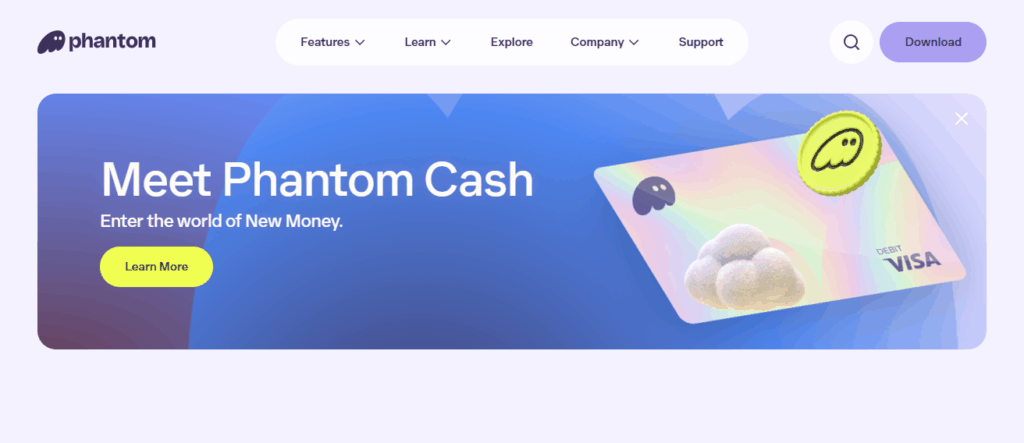
Its connectivity to decentralized application (dApp) services offers fast access to decentralized finance (DeFi) services and NFT marketplaces, and is extremely fast and easy to use.
Phantom Wallet has added Ethereum and Polygon blockchains to its service, which allows more versatility to users.
Its security features, including biometric and data encryption, have made it a preferred wallet for users in Solana and Web3 technologies.
Pros And Cons of Phantom Wallet
Pros:
- Fast, fluid, and optimized for Solana users.
- Solana staking and NFT support included.
- Now built out to Ethereum and Polygon networks.
- Ideal for beginners because of the clean and easy to use design.
Cons:
- Limited support for non-Solana.
- Built-in crypto purchase options unavailable in some areas.
- DeFi integrations are not as robust as MetaMask.
- Newly offered multi-chain support is likely to have integration challenges.
5. Exodus Wallet
Exodus Wallet is a multi-currency browser and desktop wallet designed to hold over 200 cryptographic tokens, including Bitcoin, Ethereum, and Solana.
The software features a user-friendly interface and a portfolio tracker, allowing for the swapping of cryptocurrencies and integration with the Trezor hardware wallet for added security.
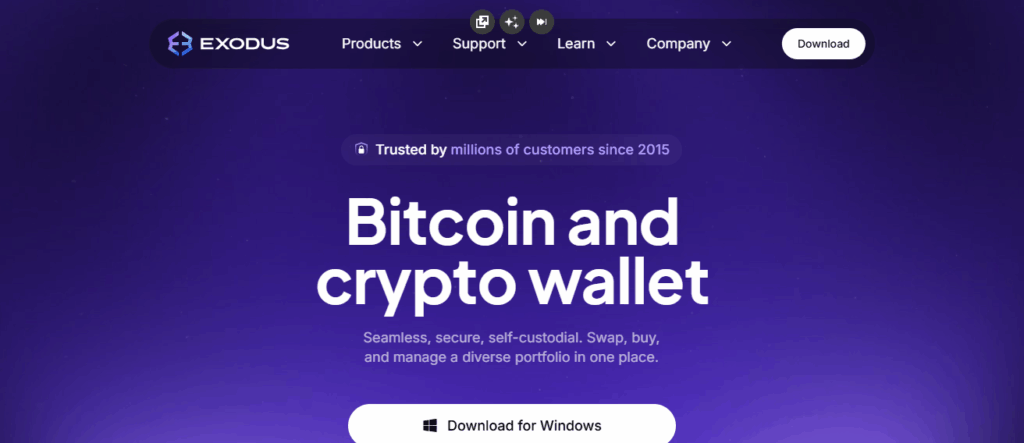
It features a browser extension that enables users to interact with dApps utilizing the Ethereum blockchain, thereby enhancing their Web3 experience.
As a non-custodial wallet, Exodus provides users with complete control over their crypto private keys and offers 24/7 customer service, making it simple for individuals entering the crypto space.
Pros And Cons of the Exodus Wallet
Pros:
- More than 200 cryptocurrency coverage.
- Incorporates a portfolio tracker in the user interface and design.
- Trezor hardware wallet integrated for more security.
- 24/7 customer support with a real person.
Cons:
- Proprietary, closed-source software.
- More expensive swap fees than DEX-based wallets.
- Advanced DeFi features are still limited.
- Newer browser extension not as feature-rich as the desktop version; mostly missing advanced features.
6. Argent Wallet
Argent Wallet aims to make the DeFi experience safe, straightforward, and seamless for users on a browser.
There are no seed phrases, as Argent offers social recovery and trusted contacts for account recovery, making it user-friendly.
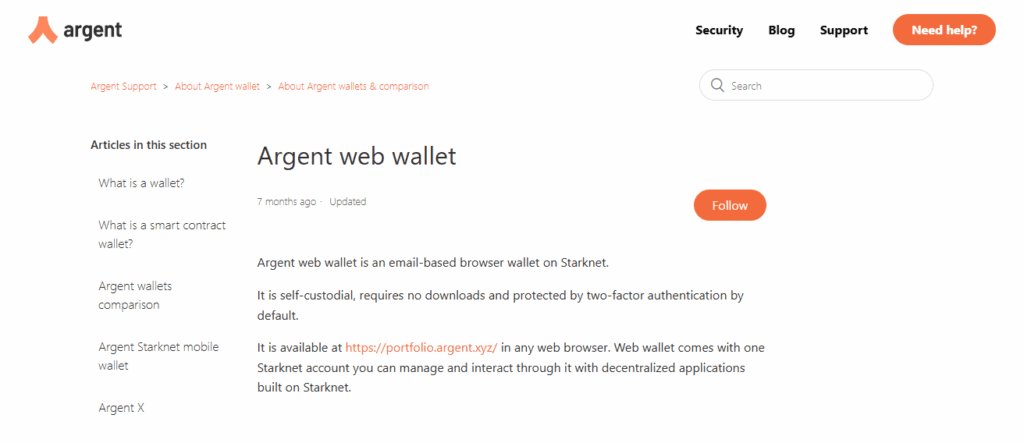
Users can stake, lend, and earn interest on their balances in the wallet as it connects to DeFi protocols like Aave, Lido, and Compound, and offers a wallet interface.
Users can link their wallet to dApps through the browser extension. Argent also provides tools for optimizing gas fees and overall transaction speeds. Argent is user-friendly and safe for all DeFi-related activities.
Pros And Cons Argent Wallet
Pros:
- Innovative social recovery — no seed phrases needed.
- Direct DeFi integration with Aave, Lido, and Compound.
- Gas fee optimization helps reduce costs.
- Strong focus on user security and simplicity.
Cons:
- Primarily supports Ethereum — lacks multi-chain compatibility.
- No built-in NFT marketplace support.
- Requires setup of “guardians” for recovery, which can confuse beginners.
- Limited customization options for advanced users.
7. ZenGo Wallet
ZenGo Wallet is a browser-compatible crypto wallet that forgoes the use of private keys with innovative keyless security technology.
It uses facial biometrics and multi-party computation (MPC) for safe and hassle-free access to crypto assets.
ZenGo supports Bitcoin, Ethereum, and other cryptocurrency assets, allowing users to buy, sell, and earn crypto directly from the wallet.
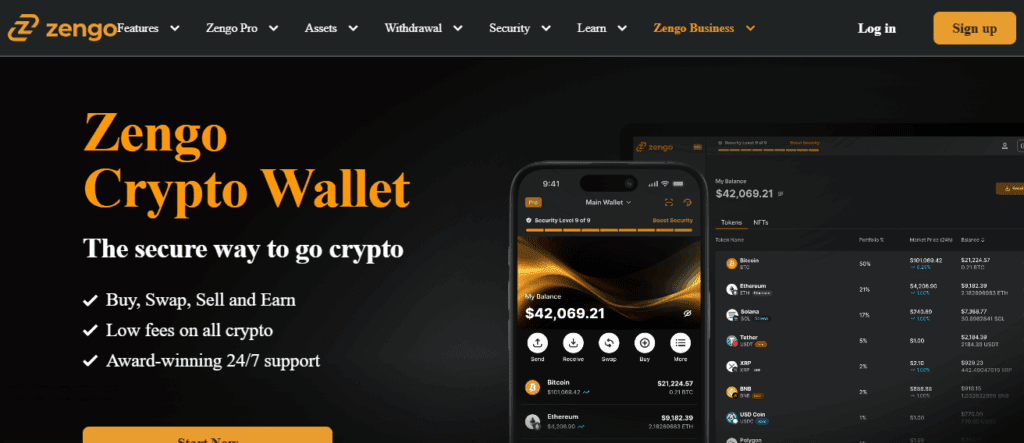
ZenGo wallet is integrated into the browser and seamlessly connects to dApps for Web3. It is intuitive and appreciates safety, making it apt for beginners.
ZenGo has a ‘no keys’ policy which means there is no lost crypto recovery phrases and with no keys comes peace of mind.
Pros And Cons ZenGo Wallet
Pros:
- Security without keys using facial biometrics and MPC technology.
- Extremely beginner-friendly.
- 24/7 live chat support.
- Supports Bitcoin, Ethereum, and several popular altcoins.
Cons:
- Custody model is partial as it depends on third party for encrypted vault management.
- Limited DeFi integrations compared to MetaMask.
- Limited support for obscure tokens.
- Consistent access to the device is needed for biometric recovery.
8. Rabby Wallet
Rabby Wallet is a browser extension developed by DeBank, designed for DeFi users who operate across multiple EVM-compatible blockchains.
It solves the problem of automatically determining the right network and switching to it when a user connects to a dApp, a problem that users of MetaMask face.
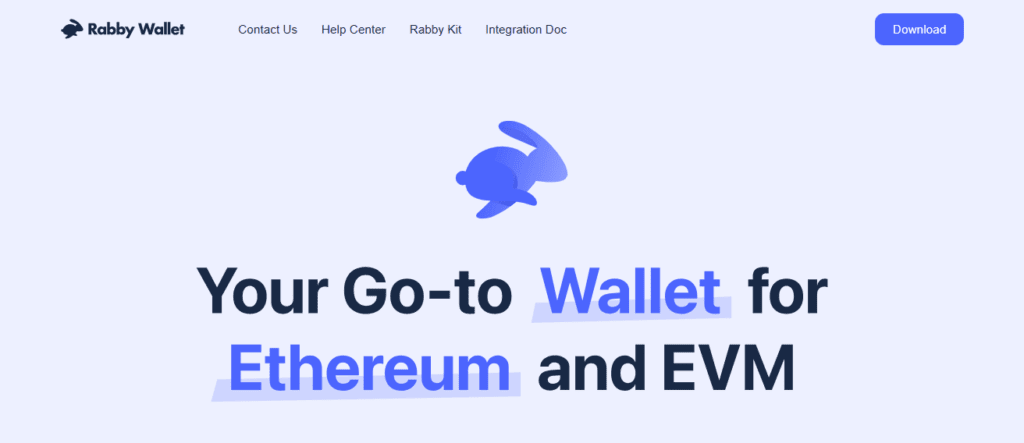
Transparent transaction previews, clear interface, and error validation features make many errors on the user’s side less likely.
As an open-source, non-custodial wallet, Rabby reinforces user control and security, offering a hassle-free multi-chain experience. Seasoned DeFi users and Web3 builders are quickly adopting it.
Pros And Cons of the Rabby Wallet
Pros:
- Automatic network switching for your multi-chain convenience.
- Clear transaction previews to avoid errors.
- Open-source and community-driven.
- Wonderful for DeFi power users.
Cons:
- Only EVM compatible blockchains, Solana and Bitcoin are excluded.
- Less users than MetaMask or Trust Wallet.
- Currently there is no mobile version.
- Complex UI might be too much for non advanced users.
9. WalletConnect
WalletConnect isn’t a wallet. WalletConnect is a secure link connecting dApps opened in web browsers to your mobile or desktop cryptocurrency wallets.
With WalletConnect, users can access dApps without exposing their private keys. WalletConnect integrates with hundreds of wallets, including MetaMask, Trust Wallet, and Rainbow.
WalletConnect provides users with encrypted connections to safely bridge wallets and dApps across different blockchains.
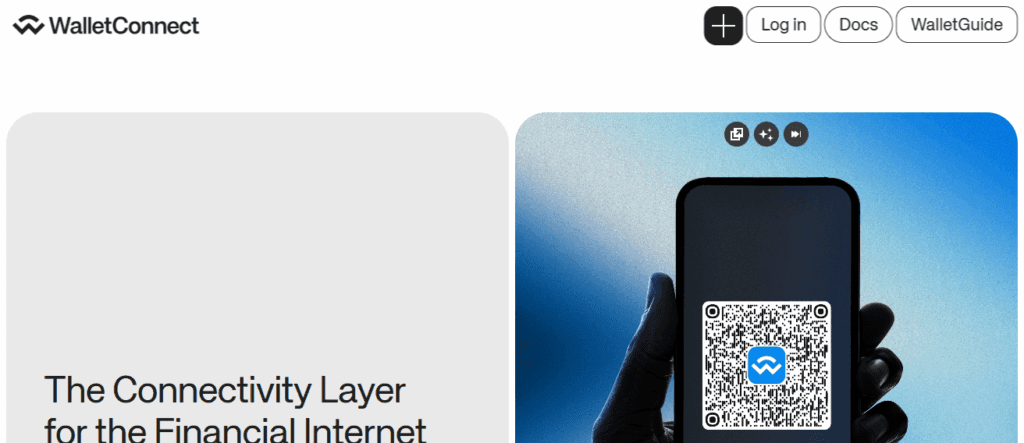
Major DeFi systems, crypto exchanges, and NFT marketplaces use WalletConnect for secure wallet-integrated dApps.
For users, WalletConnect provides seamless connectivity to the Web3 ecosystem, allowing for easy access and interaction with decentralized dApps.
Pros And Cons of WalletConnect
Pros:
- Secure connections for hundreds of wallets to dApps.
- Constructed encrypted tunnel for safe communication between wallets and dApps.
- Extensive use on DeFi and NFT platforms.
- Continuously evolving open-source protocol.
Cons:
- Must use another wallet in conjunction.
- Disconnection or pairing glitches from time to time.
- No built-in asset management.
- Limited to the supported wallet and dApp integrations.
10. BitKeep Wallet
BitKeep Wallet has evolved into a comprehensive solution for Web3, serving as both a cross-chain wallet and bridge.
As a cross-chain mobile and web browser crypto wallet, it offers support for over 90 blockchains, all assembled in one place.
These blockchains include polygon, Ethereum, BNB Smart Chain, Arbitrum, and more. It has a built-in crypto wallet, DEX aggregated for token swapping, an NFT marketplace, and a cross-chain bridge.

The browser extension connects to dApps with no third party for token exchanges. Wallet and bridge crypto encryption, integrated with a seed phrase backup system, enables staking, yield farming, and other DeFi functions.
User-interface design simplicity and ease of use makes it a great choice for novices and experienced DeFi and crypto users.
Following its rebranding to Bitget, the platform has been growing into a comprehensive cross-chain wallet bridge ecosystem for Web3 offerings.
Pros And Cons of BitKeep Wallet (Bitget Wallet)
Pros:
- Extensive support for over 90 blockchains.
- Integrated DEX, NFT marketplace, and cross-chain bridge.
- High level encryption and non-custodial wallet security.
- Recently rebranded under Bitget, which supports it as a major exchange.
Cons:
- Interface has a steep learning curve.
- Cross-chain functions can lag at times.
- Newer browser extension still in the process of improvement.
- Prior security issues (now fixed) made users skeptical.
How We Choose Best Browser-Based Crypto Wallets
Security and Privacy: The most important factor is how securely a wallet stores your digital assets.
Multi-Chain Support: We examine the extent to which a wallet is compatible with diverse blockchains such as Ethereum, Bitcoin, BNB Smart Chain, and Polygon.
User Experience (UX) and Interface: Good browser wallets should be straightforward to use, particularly for newcomers to crypto wallets.
dApp and Web3 Integration: We consider how well each wallet connects with decentralized applications (dApps) such as Uniswap, OpenSea, and Aave.
Community Trust and Reputation: We look at user feedback, community interactions, and general trust. Old and reliable wallets are evaluated more favorably compared to newer wallets which have limited user feedback and are less known.
Customer Support and Accessibility: For wallets which have documentation, live chat, or email support, we consider these services as positive working attributes for wallets.
Conclsuion
To wrap up, the best browser-based crypto wallet for you hinges on what’s most important in your crypto management: security, support for multiple blockchain networks, or access to decentralized applications.
MetaMask, Trust Wallet, and Phantom are beginner and advanced-user-friendly. Knowing the distinct advantages and disadvantages of each wallet helps you avoid the hassle and assures you of a safe management of your crypto.
FAQ
A wallet accessible via web browsers to store, send, and receive cryptocurrencies securely.
Yes, if you choose non-custodial wallets and follow security practices like backing up private keys.
MetaMask, Trust Wallet, and BitKeep support multiple blockchains like Ethereum, BNB Chain, and Polygon.
Yes, wallets like MetaMask, Phantom, and Trust Wallet allow NFT storage and marketplace access.
Wallets themselves usually don’t, but blockchain network fees (gas fees) apply for transactions.





